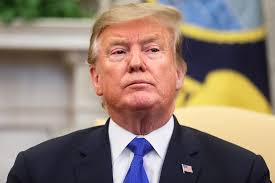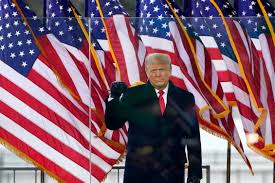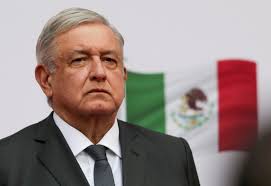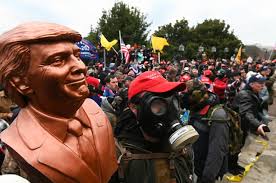The adjective Spoiler is an Anglicism that means to crumble something, but it is more commonly used in Spanish to describe the person who narrates or relates the end of an essential part of a plot in the premiere, of a television program, a movie in the cinema, or a comic book printed in advance. The spoiler reduces or kills the surprise of the person who was eagerly waiting for the opportunity to discover the outcome of something by himself. In politics, the concept spoiler is used alternatively to refer to someone who spoils something (dynamics, processes, social practices), ruins negotiations, or breaks down political, economic, or commercial projects.
A political spoiler is a disruptive element, someone who interrupts a process, a convention, a system, or a project's development. What seemed surrealistic becomes the norm; what was thought impossible or inoperative begins to happen before the eyes, not only of the guardians of orthodoxy but of all the parties that make up that system. The main reasons for the success of a spoiler are twofold: on the one hand, the weariness of the majorities in the face of a system on the verge of expiring and, on the other hand, the ability of the disruptive politician to present himself to the masses as an external player who will fight the previous paradigm and propose himself as the alternative way before the system. In effect, a spoiler succeeds when he develops the capacity to convince the disappointed of a decaying system; anti-system par excellence is offered as a renewing alternative.
 All countries would have disruptive elements in their respective political systems; however, the mere opposition to a dominant political project does not make an official, a candidate, or an actor a disruptive element, because ultimately, a system contemplates checks and balances. The disruptive factor of an actor occurs when he presents himself as an external figure - outsider - who challenges the dominant vision of that system, even with its weights and counterweights, and changes forms to get to the bottom; that is, the spoiler does not identify with almost any element of the system, although he must collaborate to enter and modify it from within. Despite spoiling something, the spoiler frequently finds massive support for the implementation of its proposals.
All countries would have disruptive elements in their respective political systems; however, the mere opposition to a dominant political project does not make an official, a candidate, or an actor a disruptive element, because ultimately, a system contemplates checks and balances. The disruptive factor of an actor occurs when he presents himself as an external figure - outsider - who challenges the dominant vision of that system, even with its weights and counterweights, and changes forms to get to the bottom; that is, the spoiler does not identify with almost any element of the system, although he must collaborate to enter and modify it from within. Despite spoiling something, the spoiler frequently finds massive support for the implementation of its proposals.
Historical characters that could represent change or rupture before the system against which they competed, but thanks to whose normativity they reached the position that allowed them to be visible and be in the possibility of changing it, replacing it, or destroying it in the 21st century. An example would be Hugo Chavez, who arrived to break with the system before him in Venezuela; Andrés Manuel López Obrador, with a society-centered approach to government, challenges the decadent dominant paradigm in Mexico centered on the State. Also, Donald Trump himself in the United States, despite being part of the system, has developed a relentless personal style of governing. Making the politically incorrect in a president, which was unthinkable in other officials, became the norm.
From this disruptive element called Donald Trump, from this spoiler of American politics (foreign and domestic), I develop here some reflections to explain the logic of his narrative and the success of his behavior. In his first presidential pre-campaign conference in the context of the start of the primary in 2015, Trump said that the United States had become a "dumping ground" for people that other countries did not want. To top it all off, then-newcomer Trump referred to Mexican migrants as rapists, kidnappers, and criminals: "When Mexico sends its people, they're not sending their best. They're bringing drugs. They're bringing crime. They're rapists. And some, I assume, are good people. After these discriminatory and stigmatizing words, conventional public opinion in the media wrongly evicted him in political terms, as his popularity went through the roof.
His politically incorrect way of speaking, confronting his opponents, disqualifying those who disagreed with him, and stigmatizing undocumented immigrants made Trump an attractive character for many reflectors, both critics and supporters. Even within the Republican Party, Trump's critics predicted his failure in the primary elections against former Florida Governor Jeb Bush or Senators Ted Cruz of Texas and Marco Rubio of Florida, whom he defeated without much trouble. In that process of the Republican primary, Trump broke with politically correct forms and made mockery and aggression against his opponents his flag of strength.
 The most challenging sectors of the Republican Party not only saw in Trump an exciting candidate, but also the hero they were waiting for, and who under the slogan of "Make America great again" and "America First" awakened an effervescent nationalism in the most deeply racist, xenophobic and supremacist sectors of the country, and reactivated the hard vote for that right-wing party. His public misogyny, which translated into direct and constant insults against women from different sectors, far from diminishing his popularity among those who supported him, increased it; this could be seen in the dismissive way he treated his opponent Hillary Clinton, whom he called "Crooked Clinton" (corrupt, crooked) during the whole campaign. Far from losing support among his potential voters, he consolidated it.
The most challenging sectors of the Republican Party not only saw in Trump an exciting candidate, but also the hero they were waiting for, and who under the slogan of "Make America great again" and "America First" awakened an effervescent nationalism in the most deeply racist, xenophobic and supremacist sectors of the country, and reactivated the hard vote for that right-wing party. His public misogyny, which translated into direct and constant insults against women from different sectors, far from diminishing his popularity among those who supported him, increased it; this could be seen in the dismissive way he treated his opponent Hillary Clinton, whom he called "Crooked Clinton" (corrupt, crooked) during the whole campaign. Far from losing support among his potential voters, he consolidated it.
As President, using nicknames against any critic or opponent inside or outside the Republican Party, Trump repeatedly called Senator Elizabeth Warren "Pocahontas" and Joe Biden "Sleepy Biden. He pushed for discriminatory measures through executive orders against Muslims (banning them from entering the U.S.) and against dreamers/dreamers trying to end the Deferred Action Act that prevents young people brought into the country by their parents as children from being deported and from having jobs. Unfortunately, both measures were overturned by the Supreme Court of Justice as unconstitutional.
Nationally, Trump repeatedly appeared on television mocking people with disabilities, imitating his critics' voices with mimicking gestures, and performing dances to cheer his policies. Fired or scandalously left his administration were General Michael Flynn, former security advisor to the President 23 days after taking office, accused of lying to the FBI in an official statement; Steve Bannon, chief strategist to the President and promoter of far-right policies; Jim Mattis, Secretary of Defense, known in the military as the 'mad dog,' who resigned a day after the announcement of the withdrawal of U.S. troops from Syria, much to the annoyance of the President, in December 2018. Also leaving were Kellyanne Conway, his advisor, and faithful defender; Stephanie Grisham, his White House press officer; John Kelly, Kirstjen Nielsen, Elaine Duke, and McAleenan (he left only in October 2020), all of them National Security Secretaries.
By 2019, Sarah Huckabee Sanders, press secretary, and the spokesperson had resigned, as had Kirstjen Nielsen, secretary of the Department of Homeland Security and Trump's immigration enforcement arm. In the case of Ryan Zinke, Secretary of the Interior, he had to resign because he was facing a conflict of interest investigation. Something similar happened with David Shulkin, his secretary of Veterans Affairs, a survivor of the Obama administration, who was accused of traveling to Europe with public money and receiving gifts from individuals.
One more group of officials fired by Trump or who resigned unusually, to say the least, is led by John Bolton, Trump's third National Security Advisor, who left upset because the President claimed that, if he had followed their recommendations, he would have already gone to war with Iran. In July 2020, Alexander Acosta also resigned as Secretary of Labor, two days after having defended his participation as a federal prosecutor in Florida, a position in which years before, he negotiated as legal, a deal considered illegal by a state court, which allowed millionaire Jeffrey Epstein, a former friend of Trump, to avoid federal charges of sexual abuse and child trafficking. Another who also left was Rod Rosenstein, the number two at the Justice Department after overseeing the special prosecution of Robert Müeller and being confronted by the White House. Due to the size of the character and the position he held in the Trumpist government, one of the most notable resignations was John F. Kelly, who had served since July 2017 as his chief of staff. Another full weight gone in the administration is Rex Tillerson, Secretary of the State Department, and was replaced by Mike Pompeo. Finally, the head of the Pentagon and the Attorney General, William Barr, met the same fate. Due to all this disorder in the American public administration, it is considered that, with Joe Biden's arrival to the White House, normality returns to the federal government.
 On an international level, Trump shook the hands of the leaders he received at the White House on official visits, such as Shinzo Abe, former Japanese Prime Minister, or Emmanuel Macrón, President of France; he publicly scolded the Australian leader, as if he were his subordinate; he left German Chancellor Angela Merkel with her hand outstretched in front of the media. In international meetings outside the United States, Trump grotesquely pushed the Prime Minister of Montenegro, Dusko Markovic, to get a place ahead of the rest of the leaders at the meeting of the North Atlantic Treaty Organization (NATO), and went so far as to publicly reprimand his NATO allies for not investing 2% of their gross domestic product in military spending. That is, Trump cared little about forms and even less about diplomatic protocol. His thing was to appear in the media as the alpha male who dominated and humiliated his interlocutors. The only four leaders with whom Trump behaved respectfully were Vladimir Putin of Russia, Xi Jinping of China, Lopez Obrador of Mexico, and Benjamin Netanyahu.
On an international level, Trump shook the hands of the leaders he received at the White House on official visits, such as Shinzo Abe, former Japanese Prime Minister, or Emmanuel Macrón, President of France; he publicly scolded the Australian leader, as if he were his subordinate; he left German Chancellor Angela Merkel with her hand outstretched in front of the media. In international meetings outside the United States, Trump grotesquely pushed the Prime Minister of Montenegro, Dusko Markovic, to get a place ahead of the rest of the leaders at the meeting of the North Atlantic Treaty Organization (NATO), and went so far as to publicly reprimand his NATO allies for not investing 2% of their gross domestic product in military spending. That is, Trump cared little about forms and even less about diplomatic protocol. His thing was to appear in the media as the alpha male who dominated and humiliated his interlocutors. The only four leaders with whom Trump behaved respectfully were Vladimir Putin of Russia, Xi Jinping of China, Lopez Obrador of Mexico, and Benjamin Netanyahu.
Trump declared a relentless commercial war to China since 2018 with losses estimated at 600 billion dollars; to Iran, he filled it with sanctions since he unilaterally removed the United States from the Nuclear Agreement in 2018; Trump recognized as legitimate President of Venezuela the self-proclaimed President in the streets, Juan Guaidó; and he prohibited Turkey from buying weapons from Russia and Germany, from purchase natural gas. He approached the North Korean leader, Kim Jung Un. Trump crossed a few steps towards North Korea, without this leading to a reduction of sanctions, but, he said publicly that he envied this leader because his people loved him. He had a lot of control over his government's institutions, which he would also like to have. Trump repeatedly threatened Mexico with building the border wall to fulfill campaign promises and unilaterally increasing 5% tariffs on imported products if the López Obrador government did not agree to serve as a safe third country for Central American immigrants. At the same time, they faced legal proceedings in the United States without staying in their territory. Thanks to the political office that the Mexican President demonstrated, a relatively harmonious relationship was achieved in the face of the increasingly volatile Trump.
Trump also faced a complex impeachment process, accused by the Democrats in the House of Representatives of carrying out the Quid pro quo with the Ukrainian President and hindering the work of U.S. authorities in investigating the case. Quid pro quo means exchanging one thing for another, "giving something for receiving something." The Democrats' accusations were that Trump had pressured the Ukrainian President to initiate investigations against Hunter Biden, son of President-elect Joe Biden, when he worked at a Ukrainian gas company, while Joe was vice president. In return, Trump had promised to donate the $300 million to Ukraine, which he had frozen from annual aid to that country to apply pressure: legal investigations in Ukraine would investigate Hunter Biden in exchange for "humanitarian" support. To his credit, the Senate, the chamber where Trump's political future would be decided, had a Republican majority, and Republican senators protected the President in the impeachment process.
After his victory at the impeachment, Trump seemed to walk right into his re-election because he managed to position the idea among his hard-core voters that the "globalists," represented by the Democrats, wanted to take him out of the game "the hard way." After all, he was dismantling the establishment in favor of the nation. He placed three conservative judges on the Supreme Court, giving them a majority of six against three liberal judges, to ensure that the highest court would work with right-wing criteria. Besides, the Democrats chose as their candidate Joe Biden, who seemed like someone Trump could easily defeat by his outgoing style of confronting adversaries.
 However, his arrogance and arrogance led him to face the covid-19 pandemic in an equivocal, if not catastrophic, manner. Trump ordered airports and borders to be closed late, made light and irresponsible comments by suggesting disinfectant injections as a treatment for covid-19 patients, and suspended US funding to the World Health Organization (WHO), accusing it of covering up for China in the pandemic; baptizing the coronavirus as the 'Chinese virus,' expelling foreign students who were not required to attend face-to-face classes; not wearing masks or avoiding healthy distance at public events; pressuring states to reopen the economy despite a record increase in infections and deaths, which positions the United States from the early days of the pandemic as the country with the most infections and deaths in the world.
However, his arrogance and arrogance led him to face the covid-19 pandemic in an equivocal, if not catastrophic, manner. Trump ordered airports and borders to be closed late, made light and irresponsible comments by suggesting disinfectant injections as a treatment for covid-19 patients, and suspended US funding to the World Health Organization (WHO), accusing it of covering up for China in the pandemic; baptizing the coronavirus as the 'Chinese virus,' expelling foreign students who were not required to attend face-to-face classes; not wearing masks or avoiding healthy distance at public events; pressuring states to reopen the economy despite a record increase in infections and deaths, which positions the United States from the early days of the pandemic as the country with the most infections and deaths in the world.
As of December 21, 2020, there were already 18 million confirmed infected people and 316,000 total deaths. Even though on March 18, when the national emergency was issued, Trump had argued that the estimated number of deaths in the United States would only range from 100,000 to 240,000 people. The economic and commercial impacts of the pandemic on this country merit separate, comprehensive analysis. The catastrophic decline in all indicators except deaths and infections suggests that the pandemic is a contributing factor in Trump's crushing defeat of Biden for re-election. Trump also caught covid-19, as did much of his team, which led him to miss even the second of the debates, where he was expected to shatter his opponent's arguments.
For a change, the covid-19 directly impacted the dynamics of the vote, as a large number of people who voted for Joe Biden resorted to voting by mail, one of the three forms allowed by U.S. election laws. Remember that the other two ways to vote are casting a ballot at the bottom of the voting booth from weeks before and the traditional way on the voting day stipulated in the calendar. Republican voters generally prefer to go out and vote massively on the calendar day. Those who vote by mail are usually those who support the Democratic Party. This electoral dynamic, as it was massified during the pandemic, generated the perception that the Republican Party was overwhelming the Democrat in the November 3 vote count when the last polling place closed, as of the 160 million people who voted (67% of the voter roll), 101 million had cast their vote by mail early.
Donald Trump, faithful to his disruptive habit, began to sow the idea of electoral fraud among his followers, even, weeks before the election, rarifying the political environment, behaving as never before a president had done. Once the postal vote count started to change the trend of total votes in favor of Biden, Trump took up the idea of electoral fraud again firmly to ignore the result. First, the President tried to get the Justice Department to investigate it. Then he pressured state legislators and Republican governors to stop counting votes or void them in favor of Biden. Trump initiated election litigation in the state courts of the six hinge states, Michigan, Wisconsin, Pennsylvania, Georgia, Arizona, and Nevada, to invalidate the election, but no court agreed. As a last resort, he tried to get the Supreme Court to hear the case, but they did not even hear his claim of lack of support and election crime issues.
Trump, disruptive as he is, has referred to state legislators and Republican governors as traitors, and the Supreme Court justices, called them cowards for not nullifying the election or changing the outcome in their favor in the six hinge states mentioned above. He has even seriously considered the possibility granted to him by American law as president to invoke martial law to put the country under the armed forces' command and repeat the elections in those six states.
Since November 3, he has not ceased to refer on Twitter to the alleged electoral fraud that he could not verify in the courts. Although he has tried by all means to polarize society and the political class of his country, he has been increasingly left without the possibility of re-election. This is something that no other president had done before and that changes the rules of the political game in the United States, starting with this spoiler character that marks a before and after in public life in that country.
 Copyright secured by Digiprove © 2021 Quixote Globe
Copyright secured by Digiprove © 2021 Quixote Globe
Muy interesante el comentario en la publicación del doctor López Almejo, sin utilizar términos rebuscados con un lenguaje sencillo que permite al lector
no especializado o no conocedor entenderr el tema